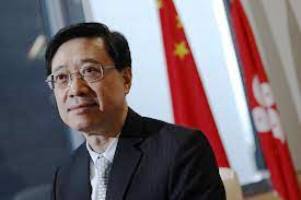The second Asia Summit on Global Health, co-organised by the Hong Kong Special Administrative Region (HKSAR) government and the Hong Kong Trade Development Council (HKTDC), kicked start on Thursday.
The two-day summit had brought together, experts and industry people from around the world to discuss the latest trends and developments in the healthcare and medical fields in person or online.
The summit had the theme’ “Charting a New Course in Healthcare through Collaboration’’.
John Lee, chief executive of the HKSAR, said at the opening ceremony that innovation and technology were at the heart of Hong Kong’s policy priorities.
They were also Hong Kong’s drive to build collaborative programmes and initiatives with the country and the larger world in order to tackle healthcare and other challenges.
The InnoHK research clusters at the Hong Kong Science Park bring together more than 30 prominent universities and research institutes from 11 countries and economies.
Lee added that in collaboration with local universities, they had set up 28 research laboratories, 16 of which focused on life and health technology.
Beginning in 2024, the HKSAR government would make use of land in the Hong Kong-Shenzhen Innovation and Technology Park to attract notable companies and talent to Hong Kong.
The focus would be on such strategic industries as life and health technology, he said.
Cao Xuetao, deputy head of the National Health Commission, noted in his video speech that Hong Kong enjoyed the unique advantage of being backed by the motherland.
The commission welcomed Hong Kong’s medical and nursing communities and medical colleges to actively exchange views with their counterparts in the mainland.
It strengthened cooperation in medical technology innovation and application, and clinical practice, Cao said.
He added that the commission supported Hong Kong’s integration into the overall health development of the country, and promoted the integrated development of health services in the Guangdong-Hong Kong-Macao Greater Bay Area.
In her video speech, Zsuzsanna Jakab, deputy director-general of the World Health Organisation, said the power of science, research, and innovation was important in addressing global health issues.
She noted that building strong and more resilient health systems, capable of responding to emergencies and other threats, would be central to all countries’ development, prosperity and national security.
Xinhua


